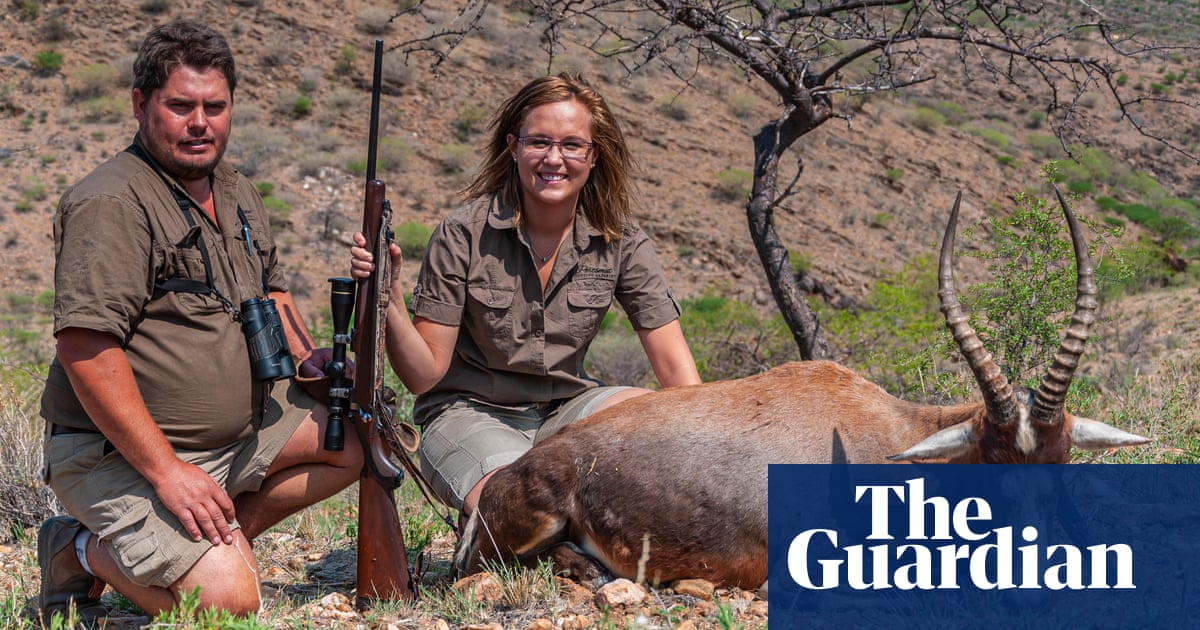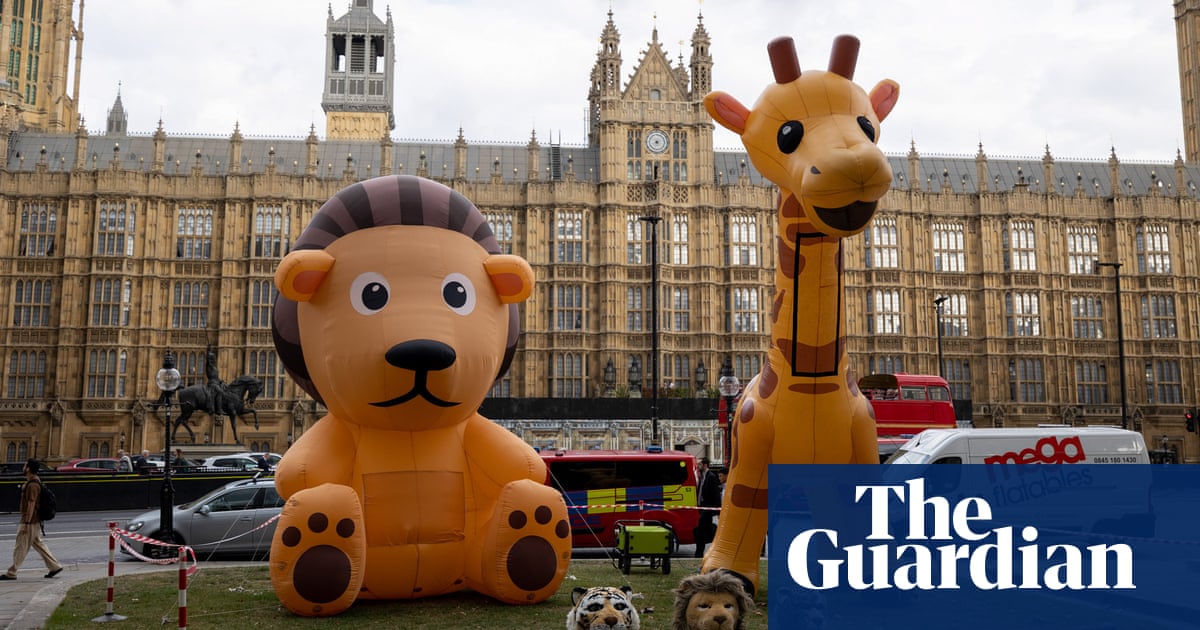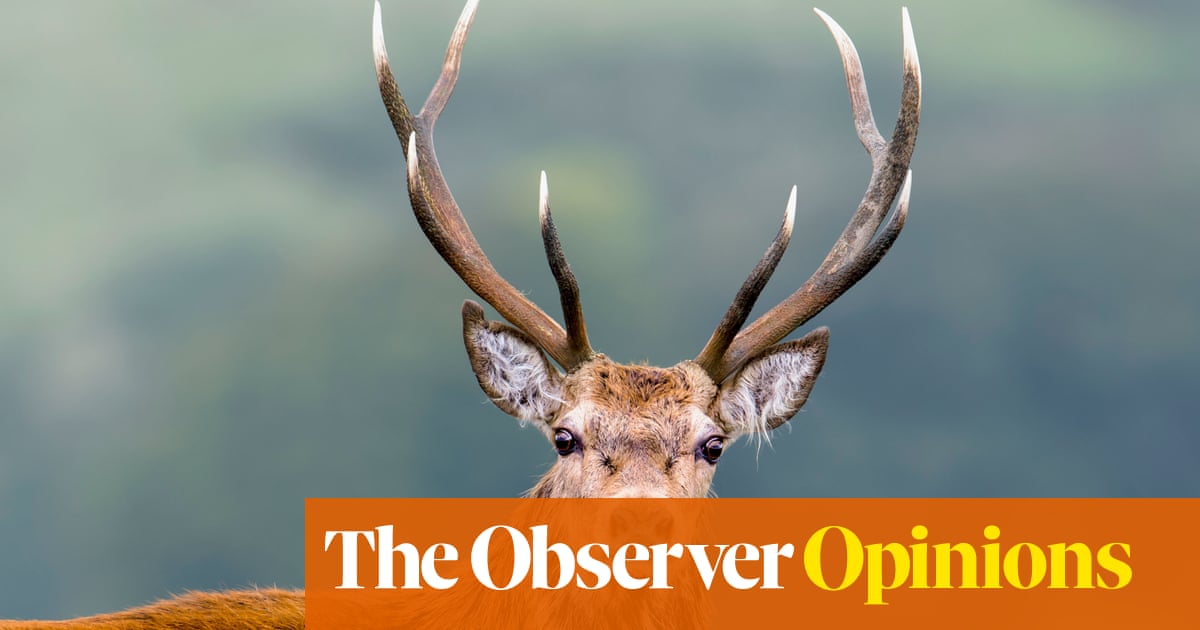
MPs have voted to support a controversial ban on importing hunting trophies from thousands of species into the UK, preventing British hunters from bringing the body parts of lions, elephants and giraffes into the country.
A private member’s bill put forward by the Conservative MP Henry Smith and backed by the government received the support of parliament after years of divisive debate on the issue. MPs from across the political spectrum spoke in favour of the legislation before it passed.
The government says the law, which will now move for debate in the Lords, will strengthen the conservation of endangered species and has widespread support from the British public. The ban was part of the 2019 Conservative election manifesto and comes after a high-profile anti-trophy hunting campaign backed by celebrities including Ricky Gervais, Brian May, Ed Sheeran and Joanna Lumley.
But many scientists, environmentalists and African community leaders have said the new law could inadvertently accelerate the loss of wildlife, and accused celebrity campaigners of “neocolonialism”. They point to the contributions of regulated trophy hunting to the recovery of populations of black and white rhino in Namibia and South Africa and the snow leopard in Tajikistan.
Amid strong views on both sides and accusations of misinformation from pro-hunting groups and anti-trophy hunting campaigners, MPs backed an amendment from Sir Christopher Chope to create an expert advisory board on the import ban. The ban will cover about 6,000 species and include some of the most endangered and charismatic animals, including hippos, leopards and polar bears.
British hunters are not a large part of the trophy hunting industry and the ban is considered largely symbolic by conservationists. In 2015, the killing of Cecil the lion by a trophy hunter in Zimbabwe provoked global outrage and revulsion at the industry, where hunters pay tens of thousands of pounds to shoot and pose with the bodies of wild animals.
The actor Peter Egan, a prominent anti-trophy hunting campaigner, said the vote was “sensational” news.
Claire Bass, a senior director of campaigns and public affairs at Humane Society International-UK, also welcomed the vote. “We’re delighted that this extremely popular bill has passed its report stage and third reading, with dozens of cross-party MPs taking the floor in today’s debate to share their strong support for legislation to stop hunters bringing their sick souvenirs back to the UK. We … look to the House of Lords to ensure swift passage of this vital law,” she said.
But others expressed their disappointment and urged the Lords to oppose the law in its current form.
“It is bitterly disappointing MPs have succumbed to an emotive but misinformed animal rights campaign”, said Amy Dickman, an Oxford University professor who is an expert on lion conservation. “This bill will kill more animals than it will save. Hopes for a rational, evidence-based debate now rest in the House of Lords.”
Maxi Pia Louis, a community leader from Namibia, said she was disappointed that the voices of Africans had not been heard. “Britain has ignored our numerous attempts to engage. What is the purpose of the diplomatic ties we supposedly share? This bill will make African communities poorer for many years to come,” she said.
The international biodiversity minister, Trudy Harrison, said the vote was a pivotal moment. “Using an internationally agreed list of species, this will play an important part in helping reverse the decline of wildlife across the world. I look forward to it becoming an act of parliament,” she said.
Henry Smith, the MP who led the private member’s bill, said the government was delivering on its 2019 manifesto commitment. “I’m grateful to the government for supporting my … bill and I look forward to it now progressing through the House of Lords. Our country does not want to be part of a trade in the body parts of endangered species. Today the Commons sent this message loud and clear,” he said.












